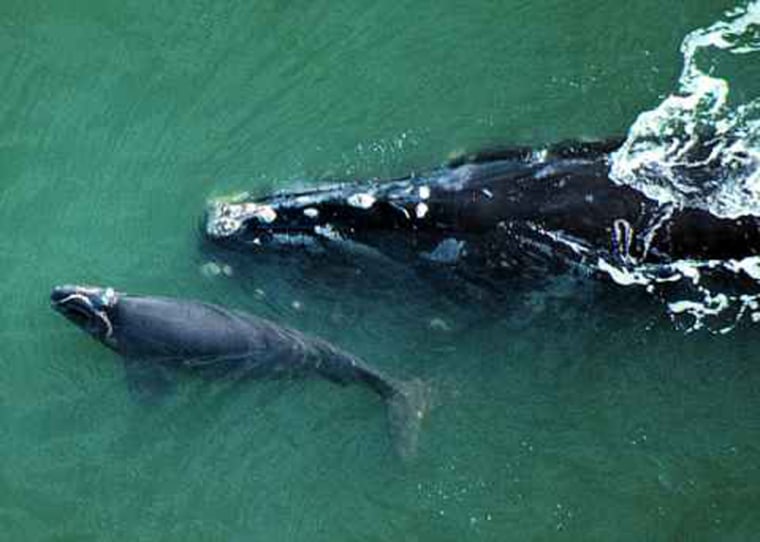A baby boom has given a lift to the endangered North Atlantic right whale, with a near-record number of births in the just-ended calving season, according to researchers at the New England Aquarium.
They warned, however, the species still faces significant hurdles.
Twenty-seven whales were born during the season that started in mid-December and ended last Thursday, second only to the 31 births recorded in 2001, the best year since scientists started tracking births in the early 1990s. Just five years ago, there was only one birth.
The species was hunted nearly to extinction in the late 18th century and its total population now numbers only 325 to 350. Five have died in the last six months, including at least two pregnant females and two other females that were of breeding age.
The newborns face significant obstacles before they can help the population rebound, said Lisa Conger, a senior biologist at the New England Aquarium who tracks the whales.
First, they must survive their migration from the calving grounds off the coasts of Florida and southern Georgia — where airplanes were used to count and photograph them — through East Coast shipping traffic to their summer habitat around Canada’s Bay of Fundy.
Juvenile whales also have a 25 percent mortality rate. Females don’t reproduce until the age of 10.
This year’s high birth numbers help, “but we’re not overexcited,” Conger said.
“We don’t want to get feeling too comfortable,” added Kate Sardi, assistant director at the Whale Center of New England.
